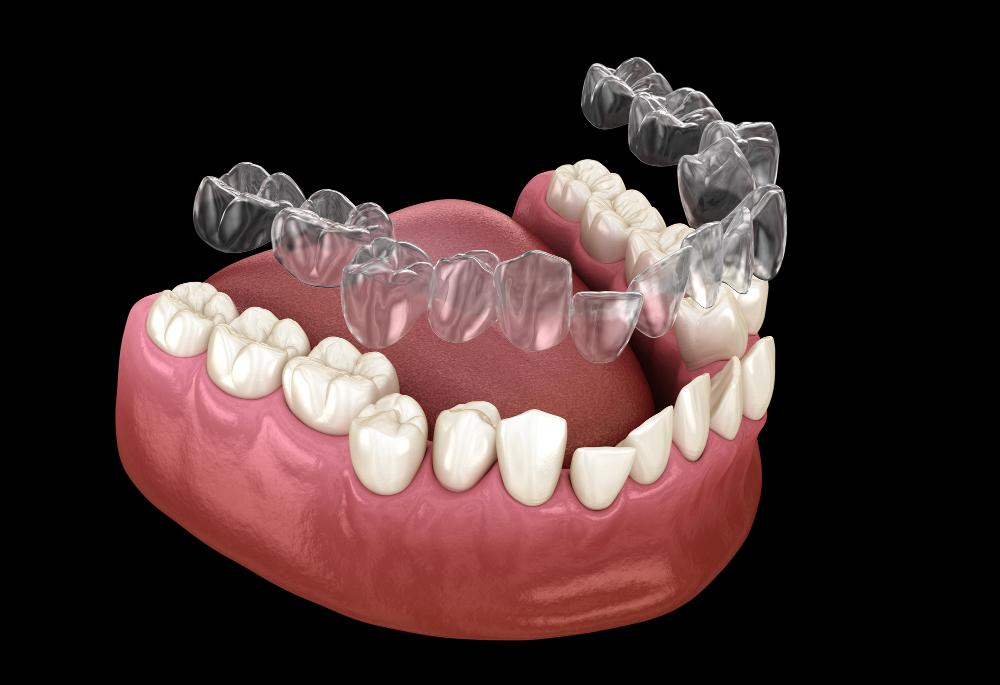Invisalign has revolutionized the world of orthodontics with its clear, removable aligners that offer a discreet alternative to traditional braces. However, many patients wonder, does Invisalign cause gum recession? Understanding the potential impacts of Invisalign on your gums is crucial for maintaining your overall oral health.
What is the Gum Recession?
Gum recession is a condition where the gum tissue surrounding the teeth wears away or pulls back, exposing more of the tooth or its root. This can lead to several issues, including increased sensitivity, a higher risk of tooth decay, and aesthetic concerns. Gum recession can result from various factors such as poor oral hygiene, aggressive brushing, gum disease, and the use of orthodontic appliances.
Understanding Invisalign
Invisalign aligners are custom-made, clear plastic trays designed to fit snugly over your teeth. They gradually shift your teeth into the desired position by applying gentle, consistent pressure. Unlike traditional braces, Invisalign is removable, making it easier to maintain oral hygiene practices like brushing and flossing. This feature alone can be beneficial in preventing gum problems often associated with fixed braces.
The Connection Between Invisalign and Gum Health
Many patients fear that orthodontic treatments, including Invisalign, might lead to gum recession. However, there is no direct evidence that Invisalign causes gum recession. In fact, Invisalign can be less likely to contribute to gum recession compared to traditional braces. The ability to remove the aligners for cleaning reduces the risk of plaque buildup, which is a significant factor in gum disease and recession.
Potential Risks and Preventive Measures
While Invisalign itself does not cause gum recession, improper use or neglecting oral hygiene during treatment can contribute to gum issues. Here are some key preventive measures:
- Maintain Excellent Oral Hygiene: One of the most significant benefits of Invisalign is the ease of maintaining oral hygiene. Always remove your aligners before eating and brush your teeth before putting them back on. Floss daily to prevent plaque buildup, which can lead to gum disease and recession.
- Regular Dental Check-Ups: Regular visits to your Invisalign dentist are crucial. These check-ups allow your dentist to monitor your progress and ensure your gums remain healthy. Professional cleanings can also help in removing any plaque or tartar that you might have missed during your routine brushing and flossing.
- Proper Use of Aligners: Follow your Invisalign treatment plan diligently. Wear your aligners for the recommended 20-22 hours per day and replace them as instructed by your dentist. Improper use can lead to uneven pressure on your teeth, potentially affecting your gums.
Comparing Invisalign with Traditional Braces
Traditional braces involve brackets and wires that can make brushing and flossing challenging, often leading to plaque buildup and gum problems. Invisalign, with its removable aligners, makes it easier to maintain gum health. However, both treatments require a commitment to good oral hygiene practices to prevent gum recession and other dental issues.
When to Seek Help
If you notice signs of gum recession, such as increased tooth sensitivity, visible tooth roots, or changes in the appearance of your gums, consult your dentist immediately. Early intervention can prevent further recession and help maintain your oral health.
While Invisalign does not inherently cause gum recession, maintaining proper oral hygiene and adhering to your treatment plan are essential to preventing any gum issues. Regular dental check-ups and cleanings play a significant role in keeping your gums healthy during your Invisalign journey.
For those looking to enhance their smile with treatments like Invisalign, teeth whitening, or dental implants, we are here to help. At Dr. Alex Rubinov’s practice, we prioritize your oral health and provide comprehensive care tailored to your needs. Contact us today to schedule your consultation and start your journey toward a healthier, more beautiful smile.


